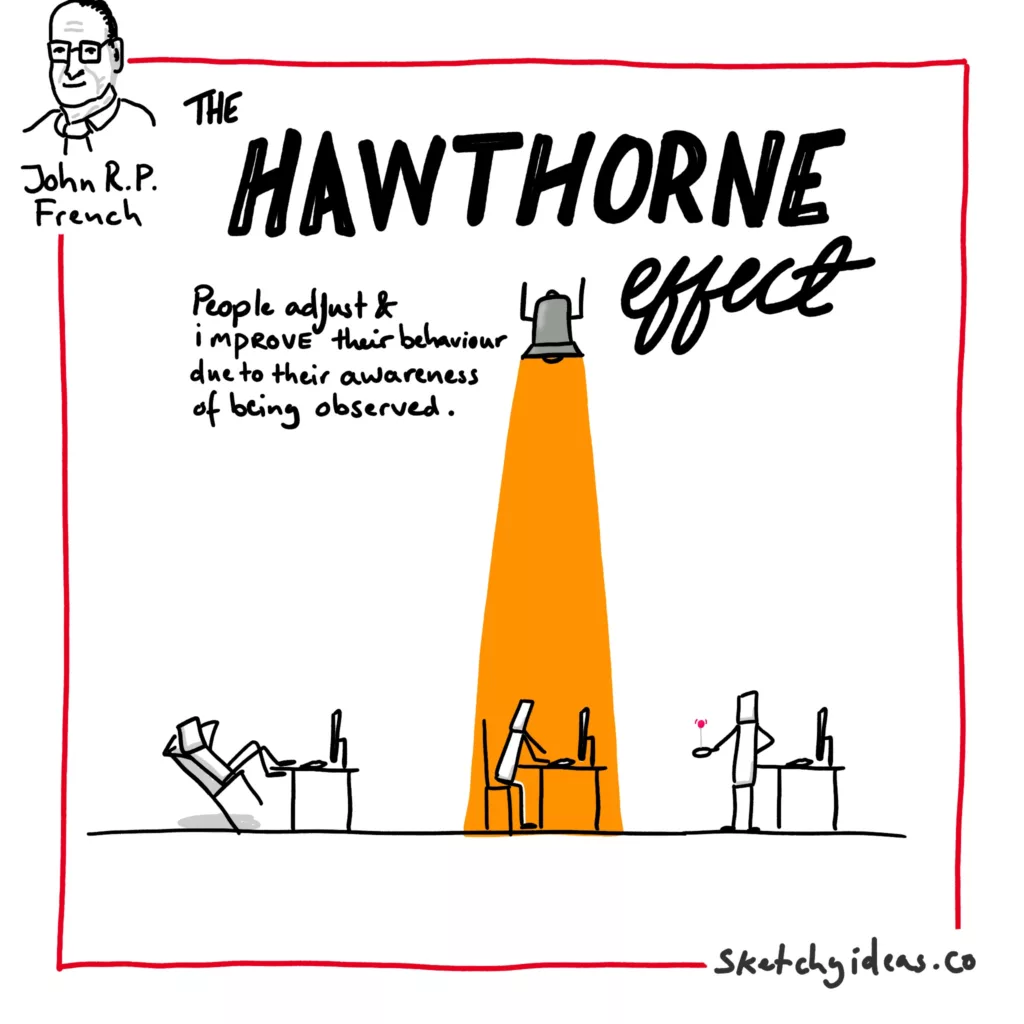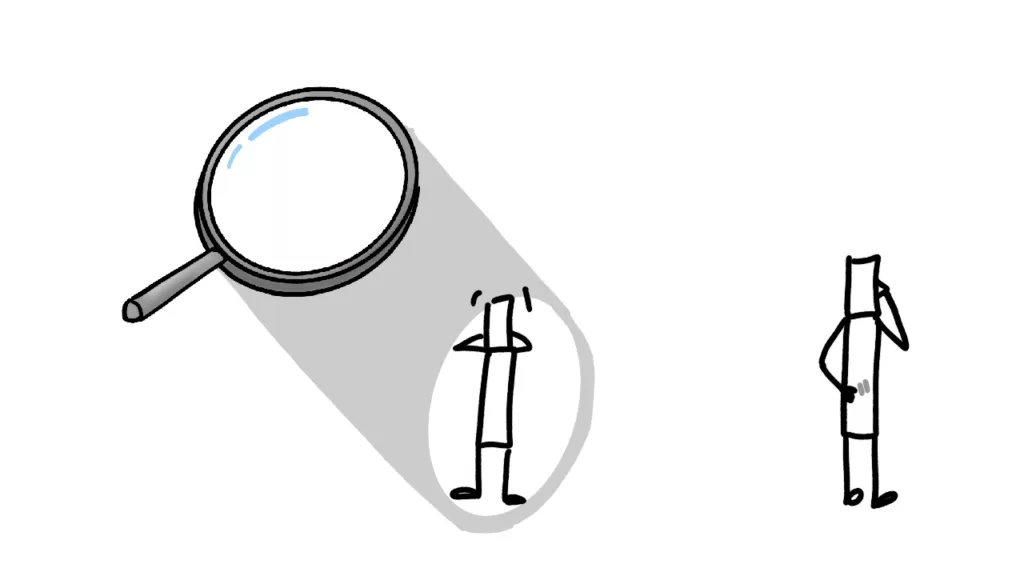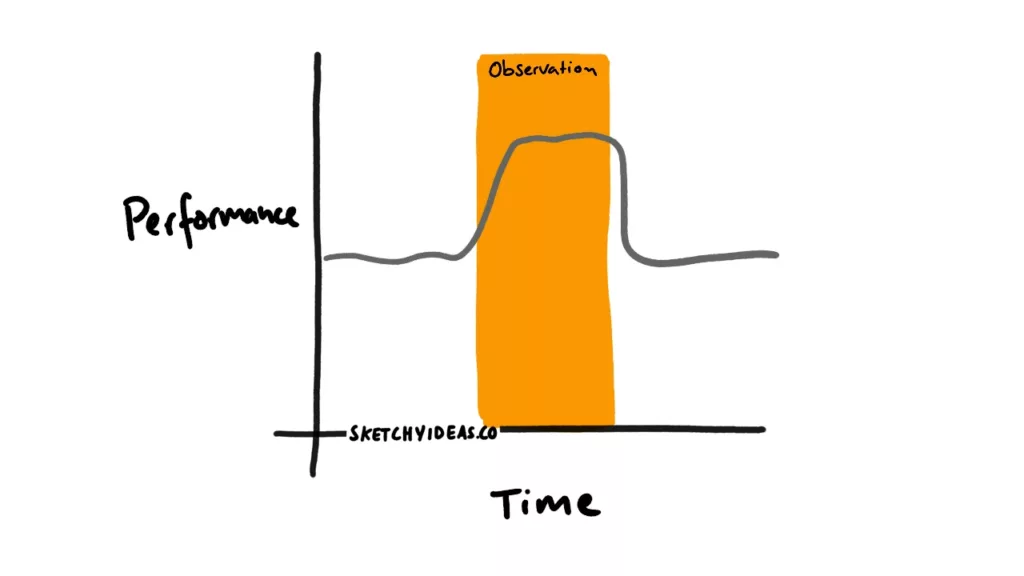Have you ever been having a lazy day at work?
Nothing much to do, so you plod through your tasks. Suddenly, someone walks towards your desk. You quickly sit up and start looking like you’re doing work.
Congratulations, you experienced a small taste of the Hawthorne effect — a psychological effect we can leverage as a mental model.
In this article, I’ll take you through what the Hawthorne effect is, why it matters and how you can use it to be more focused and productive.
What is the Hawthorne Effect?
The Hawthorne effect is a phenomenon where people perform better when they are aware that they are being observed.

It was coined by John R.P. French in the 1950s. He looked at data from experiments in the 1920s and 30s Western Electric’s Hawthorne Works electric company in Hawthorne, Illinois — hence the name.
The company had conducted experiments on a range of factors (lighting levels, timing of breaks, length of the workday) to see if they had any effect on productivity. And they did. They all increased productivity. Even completely opposite changes like raising or lowering lighting levels.
But there was a catch.
After the experiment was over, the productivity boost would disappear.
The initial conclusion the researchers drew was that more attention from managers leads to increased performance. Since then, that’s been disputed. Especially as micro-managing can lead to massive underperformance.

Instead, it seems an awareness of being observed and taking part in an experiment leads to increased performance.
This doesn’t just come out in productivity or through a third party observing you. If you ask someone to track their spending, they will naturally change their spending habits to reflect their values more than they would naturally.
And that leads us nicely to why this matters.
Why Does the Hawthorne Effect Matter?
The Hawthorne effect matters for two reasons.
- It can help us be more productive
- It helps us avoid a key cognitive bias
Let’s look at each.
Increasing productivity
All it takes to enhance your performance is an awareness of being observed.
This doesn’t have to be a formal and strict performance review — and that can even have negative effects due to the stress and pressure it may cause. It can simply be the presence of another person around you or a chart to track your data.
But we also need to be careful of its effect
Drawing the wrong conclusions from experiments
The Hawthorne effect also helps protect us from making an easy error.
We might try an experiment to see if it makes us more productive or effective. But the very act of running the experiment might be the thing that makes us more effective.
We can still use that placebo-like effect to increase our productivity, but we should be aware that the effects will wear off.
While it can be useful to apply this to others, there are a few easy applications to help yourself be more productive.
How to Use the Hawthorne Effect to boost your productivity
Here are a few simple ideas for how you can practically use the Hawthorne effect to boost your own productivity. You could also adjust them to help your team.

Coworking and using shared spaces
Coworking is when you work around others.
This might just be going to the same location to work, but it could be more. You could share what you want to focus on and achieve in a certain space of time leading to a sense of accountability. You can even do online coworking via services like Focusmate.
This is a simple way to raise your awareness of being observed.
Track your data — manually!
Tracking your own data is a way to use the Hawthorne effect without an outside observer.
When you know that what you do will be recorded, you will want to optimise your efforts. Establishing average numbers as well as goals can help motivate you further. Some options include
- Budgeting tools
- Goal tracking apps
- Task management apps and todo lists
- Journaling and reflecting on your goals and aims.
Just be warned: this kind of self-checking can wear off over time as it becomes routine.
Accountability partners
A final option is to get someone to check on you.
This is an asynchronous option of coworking that has pros and cons. For some people, it can really help motivate, but it can also produce the reverse effect. When people “fall behind” they can easily feel more demotivated and choose to give up.
It might be more helpful, therefore, to have them check in on you regularly rather than infrequently to help avoid the fall-behind effect.
Try personal experiments
A final point is to try personal experiments.
The mere act of running an experiment is likely to help you do more and better. Plus, you can test different ideas over time.
And by constantly experimenting, the Hawthorne effect will never wear off.
Ready to be observed?
It’s incredible the power that awareness can have in changing our behaviour. All it takes is to collaborate with someone else, run a personal experiment, or track your own performance.
What’s stopping you from giving it a go?

Leave a Reply